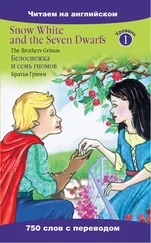Эжен Сю - The Seven Cardinal Sins - Envy and Indolence
Здесь есть возможность читать онлайн «Эжен Сю - The Seven Cardinal Sins - Envy and Indolence» — ознакомительный отрывок электронной книги совершенно бесплатно, а после прочтения отрывка купить полную версию. В некоторых случаях можно слушать аудио, скачать через торрент в формате fb2 и присутствует краткое содержание. Жанр: literature_19, foreign_antique, foreign_prose, на английском языке. Описание произведения, (предисловие) а так же отзывы посетителей доступны на портале библиотеки ЛибКат.
- Название:The Seven Cardinal Sins: Envy and Indolence
- Автор:
- Жанр:
- Год:неизвестен
- ISBN:нет данных
- Рейтинг книги:3 / 5. Голосов: 1
-
Избранное:Добавить в избранное
- Отзывы:
-
Ваша оценка:
- 60
- 1
- 2
- 3
- 4
- 5
The Seven Cardinal Sins: Envy and Indolence: краткое содержание, описание и аннотация
Предлагаем к чтению аннотацию, описание, краткое содержание или предисловие (зависит от того, что написал сам автор книги «The Seven Cardinal Sins: Envy and Indolence»). Если вы не нашли необходимую информацию о книге — напишите в комментариях, мы постараемся отыскать её.
The Seven Cardinal Sins: Envy and Indolence — читать онлайн ознакомительный отрывок
Ниже представлен текст книги, разбитый по страницам. Система сохранения места последней прочитанной страницы, позволяет с удобством читать онлайн бесплатно книгу «The Seven Cardinal Sins: Envy and Indolence», без необходимости каждый раз заново искать на чём Вы остановились. Поставьте закладку, и сможете в любой момент перейти на страницу, на которой закончили чтение.
Интервал:
Закладка:
Eugène Sue
The Seven Cardinal Sins: Envy and Indolence
ENVY
CHAPTER I
IN the year 1828 any tourist who was on his way from Blois to the little town of Pont Brillant to visit – as travellers seldom fail to do – the famous castle of that name, the magnificent feudal abode of the Marquises Pont Brillant, would have been obliged to pass a farmhouse standing near the edge of the road, about two miles from the château.
If this lonely dwelling attracted the attention of the traveller, he would have been almost certain to have regarded it with mingled melancholy and disgust as one of the too numerous specimens of hideous rural architecture in France, even when these habitations belong to persons possessed of a competence. This establishment consisted of a large barn and storehouse, with two long wings in the rear. The interior of the sort of parallelogram thus formed served as a courtyard, and was filled with piles of manure rotting in pools of stagnant water, for cow, horse, and sheep stables all opened into this enclosure, where all sorts of domestic animals, from poultry to hogs, were scratching and rooting.
One of the wings in the rear served as the abode of the family. It was a story and a half high, and had no outlook save this loathsome courtyard, with the dirty, worm-eaten doors of the cow-stable for a horizon. On the other side of the structure, where no window pierced the wall, stood a superb grove of century-old oaks, a couple of acres in extent, through which flowed a beautiful stream that served as an outlet for several distant lakes. But this grove, in spite of its beauty, had become well-nigh a desert on account of the large amount of gravel that had been deposited there, and the thick growth of rushes and thistles that covered it; besides, the stream, for want of cleaning out and of a sufficient fall, was becoming turbid and stagnant.
But if this same tourist had passed this same farmhouse one year afterward, he would have been struck by the sudden metamorphosis that the place had undergone, though it still belonged to the same owner. A beautiful lawn, close and fine as velvet, and ornamented with big clumps of rose-bushes, had taken the place of the dirty manure-strewn courtyard. New doors had been cut on the other side of the horse and cow stables; the old doors had been walled up, and the house itself, as well as the big barn at the foot of the courtyard, had been whitewashed and covered with a green trellis up which vigorous shoots of honeysuckle, clematis, and woodbine were already climbing.
The wing in which the family lived had been surrounded with flowering plants and shrubbery. A gravel path led up to the main doorway, which was now shaded by a broad, rustic porch with a thatched roof in which big clumps of houseleek and dwarf iris were growing. This rustic porch, overhung with luxuriant vines, evidently served as the family sitting-room. The window-frames, which were painted a dark green, contrasted strikingly with the dazzling whiteness of the curtains and the clearness of the window-panes, and on each sill was a small jardinière made of silver birch bark, and filled with freshly gathered flowers. A light fence, half concealed by roses, lilacs, and acacias, had been run from one wing of the establishment to the other, parallel with the barn, thus enclosing this charming garden. The grove had undergone a no less complete transformation. A rich carpet of velvety turf, cut with winding walks of shining yellow sand, had superseded the rushes and thistles; the formerly sluggish stream, turned into a new bed and checked in the middle of its course by a pile of large, moss-covered rocks three or four feet high, plunged from the height in a little bubbling, dancing waterfall, then continued its clear and rapid course on a level with its grassy borders.
A few beds of scarlet geraniums, whose brilliant hues contrasted vividly with the rich, green turf, brightened this charming spot, in which the few bright sunbeams that forced their way through dense foliage made a bewitching play of light and shade, especially in the vista through which one could see in the distance the forest of Pont Brillant, dominated by its ancient castle.
The details of this complete transformation, effected in so short a time by such simple and inexpensive means, seem puerile, perhaps, but are really highly significant as the expression of one of the thousand different phases of maternal love. Yes, a young woman sixteen years of age, married when only a little over fifteen, exiled here in this solitude, had thus metamorphosed it.
It was the desire to surround her expected child with bright and beautiful objects here in this lonely spot where he was to live, that had thus developed the young mother's taste, and each pleasing innovation which she had effected in this gloomy, unattractive place, had been planned merely with the purpose of providing a suitable setting for this dear little eagerly expected child.
On the greensward in the carefully enclosed courtyard the child could play as an infant. The porch would afford a healthful shelter in case it rained or the sun was too hot. Later, when he outgrew his babyhood, he could play and run about in the shady grove, under his mother's watchful eye, and amuse himself by listening to the soft murmur of the waterfall, or by watching it dance and sparkle along over the mossy rocks. The limpid stream, kept at a uniform depth of barely two feet now, held no dangers for the child, who, on the contrary, as soon as the warm summer days came, could bathe, whenever the desire seized him, in the crystal-clear water that filtered through a bed of fine gravel.
In this, as in many other details, as we shall see by and by, a sort of inspiration seemed to have guided this young mother in her plan of changing this untidy, ugly farmhouse into a cheerful and attractive home.
At the date at which this story begins, – the last of the month of June, 1845, – the young mother had been residing in this farmhouse for seventeen years. The shrubs in the courtyard had become trees; the buildings were almost completely hidden under a luxuriant mantle of flowering vines, while even in winter the walls and porch were thickly covered with ivy; while in the adjoining grove the melancholy murmur of the little cascade and the stream were still heard. The glass door of a large room which served at the same time as a parlour for the mother and a schoolroom for her son, now sixteen years of age, opened out upon this grove. This room likewise served as a sort of museum – one might be disposed to smile at this rather pretentious word, so we will say instead a maternal shrine or reliquary, for a large but inexpensive cabinet contained a host of articles which the fond mother had carefully preserved as precious mementoes of different epochs in her son's life.
Everything bore a date, from the infant's rattle to the crown of oak leaves which the youth had won at a competitive examination in the neighbouring town of Pont Brillant, where the proud mother had sent her son to test his powers. There, too, everything had its significance, from the little broken toy gun to the emblem of white satin fringed with gold, which neophytes wear so proudly at their first communion.
These relics were puerile, even ridiculous perhaps, and yet, when we remember that all the incidents of her son's life with which these articles were associated had been important, touching, or deeply solemn events to this young mother living in complete solitude and idolising her son, we can forgive this worship of the past and also understand the feeling that had prompted her to place among these relics a small porcelain lamp, by the subdued light of which the mother had watched over her son during a long and dangerous illness from which his life had been saved by a modest but clever physician of Pont Brillant.
Читать дальшеИнтервал:
Закладка:
Похожие книги на «The Seven Cardinal Sins: Envy and Indolence»
Представляем Вашему вниманию похожие книги на «The Seven Cardinal Sins: Envy and Indolence» списком для выбора. Мы отобрали схожую по названию и смыслу литературу в надежде предоставить читателям больше вариантов отыскать новые, интересные, ещё непрочитанные произведения.
Обсуждение, отзывы о книге «The Seven Cardinal Sins: Envy and Indolence» и просто собственные мнения читателей. Оставьте ваши комментарии, напишите, что Вы думаете о произведении, его смысле или главных героях. Укажите что конкретно понравилось, а что нет, и почему Вы так считаете.












